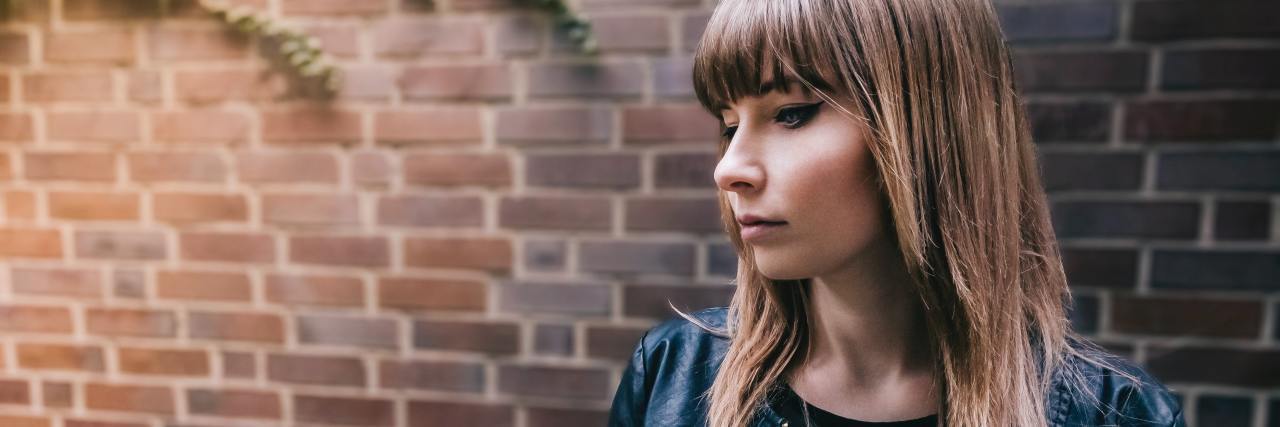What COVID-19 Has Taught Me About Mental Health Recovery
Editor's Note
If you experience suicidal thoughts, the following post could be potentially triggering. You can contact the Crisis Text Line by texting “START” to 741741.
Quarantine has been pretty detrimental to my mental health to say the least. For the last year, I’ve been working. That doesn’t sound like much, but for me, that’s huge. Just months prior to starting that job, my mental health was in the worst shape it had ever been in. My mental health was in such a bad place that it frequently took a toll on my overall physical health: constant stomach trouble, fatigue, heart palpitations, weight loss, etc. My point being, I didn’t think I’d ever be “functioning.” I didn’t believe I was capable of living a “normal” life.
I have both generalized anxiety disorder (GAD) and severe social anxiety and depression. I had been isolating myself from the world for over a year. In that year, I became agoraphobic, I almost never left my house, and the times I did leave, I needed my mom by my side at all times. Though alone and locked away is where I feel most comfortable, it also serves as the perfect environment for mental illness to grow and fester until it feels like an untamable beast. I had no confidence, no social skills, no self-esteem. I felt like a “freak” for struggling so much just to cough up words while everyone surrounding me held conversations like it was nothing. I knew this had become a huge problem, but I didn’t see how I’d ever be able to make things better. I felt shackled and stuck, like there was no way to progress because to make progress meant to go out of my comfort zone… which terrified me — it’s called a comfort zone for a reason after all. I felt so hopeless, so weighed down, my brain would default to repeating “I want to die,” like a broken record. I was just so sad and felt so broken.
But then, I got a glimmer of hope. They were hiring at my mom’s place of work. They had a cook position open, so I’d be able to stay in the kitchen and pretty much never have to interact with people other than my co-workers. Though I wasn’t super confident I’d be able to hold a job, I have a bad habit of running away from things the minute they scare me. But then I started, and each challenge I thought might break me, didn’t. Of course, there were plenty of workplace anxiety attacks, but I’d always get up and come straight back. Each challenge, I fought through it, and realized everything wasn’t so scary. For the first time in my life, I felt hopeful, happy, even a little confident. Socializing was, and certainly still is, a struggle, but I was slowly getting better. I was holding a job, the longest job I’ve ever held. I was basically running the whole kitchen, and I felt pretty proud of myself.
But by no means am I truly better. If there is one thing this pandemic, and thus this quarantine, has taught me, it’s you can’t distract yourself and call that healing. This pandemic has left me without a job for the time being, and it only took two weeks of unemployment for me to realize everything wasn’t OK. For my brain to default to “I want to die” again. I never dealt with my mental health and what led me to fall apart in the first place. I simply threw myself into work and refused to deal with it, and because of that, I am not healed. I’m not better. That’s a pretty bitter pill to swallow. My issues were still there waiting for me. Forced self-isolation feels exactly the same as the voluntary isolation I put myself through in my darker days. I will say I am definitely in a better place, more equipped to deal with this major mental health backslide, but I’d be kidding myself if I called myself healthy.
Quarantine has forced me to realize you can’t just busy yourself and hope things fix themselves, it doesn’t work like that. It’s been hard. I’ve had multiple breakdowns, terrible anxiety and bouts of insomnia. But maybe I needed this wake-up call. I know now I have to deal with this. And I think I’ll be better for it. These times are scary and they are tough, but we’re all going to get through it.
Struggling with your mental health due to COVID-19? You’re not alone. Check out the following articles from our community:
- 7 Things to Do If Social Distancing Is Triggering Your Depression
- Feeling Calm in the Midst of the Coronavirus Pandemic Might Be a Trauma Response
- 6 Tips If You’re Anxious About Being Unable to Go to Therapy Because of COVID-19
- What to Do If the Coronavirus Health Guidelines Are Triggering Your Anxiety or OCD
- How Can You Tell the Difference Between Anxiety and COVID-19 Symptoms?
Unsplash image by Remy Loz

